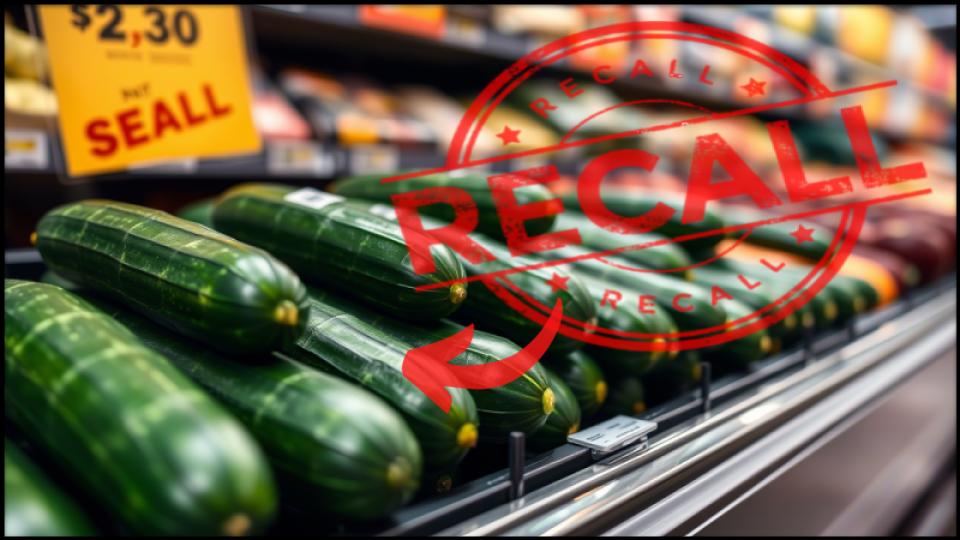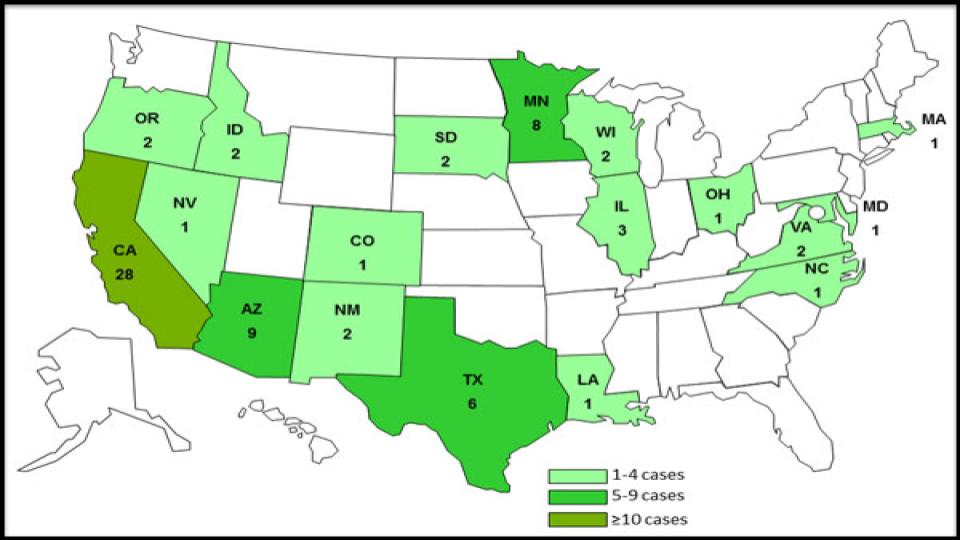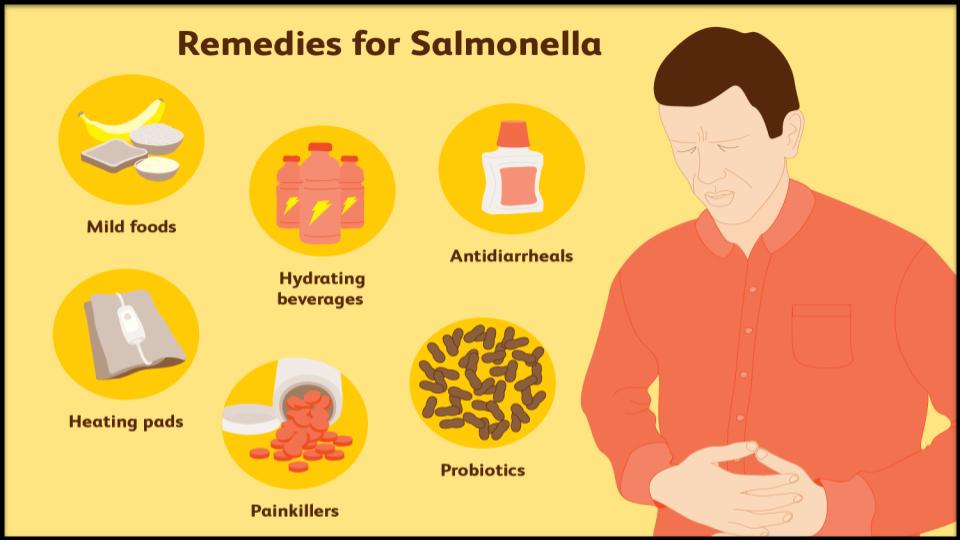Federal health officials have expanded an urgent cucumber recall across the United States following a multi-state Salmonella outbreak that has led to dozens of illnesses and multiple hospitalizations. The U.S. Food and Drug Administration (FDA) and the Centers for Disease Control and Prevention (CDC) are investigating the contamination, which is linked to cucumbers grown in Florida and distributed to numerous states, prompting widespread public health alerts.

The Cucumber Recall at a Glance
| Key Fact | Detail/Statistic |
| Product Recalled | Whole cucumbers shipped by Fresh Start Produce Sales, Inc. |
| Reason | Potential contamination with Salmonella Montevideo |
| Illnesses Reported | At least 162 illnesses |
| Hospitalizations | At least 54 hospitalizations |
| Affected States | 25 states and the District of Columbia |
Scope of the Recall and Public Health Impact
The investigation into the Salmonella outbreak has intensified as the number of affected individuals continues to grow. The initial recall, initiated by Fresh Start Produce Sales, Inc. of Delray, Florida, covers whole cucumbers that were shipped to retail distribution centers, wholesalers, and food service distributors between May 17 and May 21, 2025.
The cucumbers were grown in Florida and are described as dark green, approximately 1.5 to 2.0 inches in diameter, and 5 to 9 inches in length. The recall does not include mini cucumbers or English cucumbers.
Tracing the Source of the Salmonella Outbreak
The FDA has been conducting a thorough investigation to pinpoint the source of the contamination. According to their updates, a product sample of the cucumbers tested positive for the bacteria. “The FDA is conducting whole genome sequencing to determine if this sample is related to an ongoing Salmonella outbreak investigation,” a statement from the agency noted.
The CDC has reported a significant number of illnesses across numerous states, with the elderly and individuals with weakened immune systems being particularly vulnerable to severe outcomes. “Of the people who have been hospitalized, many have been in vulnerable age groups,” said a CDC spokesperson during a press briefing.

Retailers and Secondary Recalls: A Widening Net
The impact of the urgent cucumber recall has cascaded through the food supply chain, leading to a series of secondary recalls for products made with the potentially contaminated vegetables. Major retailers have pulled items from their shelves, including:
- Walmart: Recalled Marketside brand fresh-cut cucumber slices.
- Albertsons Companies: Recalled store-made salads sold at affiliates like Safeway and Acme.
- JFE Franchising, Inc.: Recalled sushi and other products containing fresh cucumbers sold at Kroger and other affiliated stores.
Consumers are urged to check their refrigerators for these and other products containing fresh cucumbers and to discard them immediately if they are part of the recall. “If in doubt, throw it out,” advised the FDA in its consumer safety alert. The agency has emphasized that the cucumbers are now past their shelf life and should no longer be available for sale, but may still be in consumers’ homes.
Understanding the Risks of Salmonella
Salmonella is a bacterium that can cause serious and sometimes fatal infections, particularly in young children, frail or elderly people, and others with weakened immune systems. Healthy individuals infected with Salmonella often experience fever, diarrhea (which may be bloody), nausea, vomiting, and abdominal pain.
Symptoms typically begin 6 hours to 6 days after infection and last for 4 to 7 days. While most people recover without specific treatment, severe cases of diarrhea may lead to dehydration and require hospitalization.

The CDC recommends that anyone experiencing severe Salmonella symptoms, including a fever over 102°F, diarrhea for more than three days without improvement, bloody stools, or signs of dehydration, should seek medical attention promptly.
The ongoing investigation by the FDA and CDC aims to determine if this outbreak is connected to another recent Salmonella outbreak with a different strain that has also caused numerous illnesses. The agencies are comparing epidemiological data to see if a common food source is responsible.
FAQ on Urgent Cucumber Recall
1. What should I do if I have the recalled cucumbers?
Do not eat them. The FDA advises consumers to throw the cucumbers away or return them to the place of purchase for a full refund.
2. How can I tell if my cucumbers are part of the recall?
The recalled cucumbers are dark green, 5-9 inches long, and were sold in bulk between May 17 and May 21, 2025. If you cannot determine the source of your cucumbers, it is safest to discard them.
3. What are the symptoms of a Salmonella infection?
Common symptoms include diarrhea, fever, and stomach cramps. Severe symptoms can include high fever, bloody diarrhea, and signs of dehydration.
4. Who is most at risk from this Salmonella outbreak?
Young children, adults over 65, and people with compromised immune systems are at a higher risk for severe illness.
Urgent Blueberry Recall Issued Over Deadly Listeria Risk, FDA Issues Highest Alert
